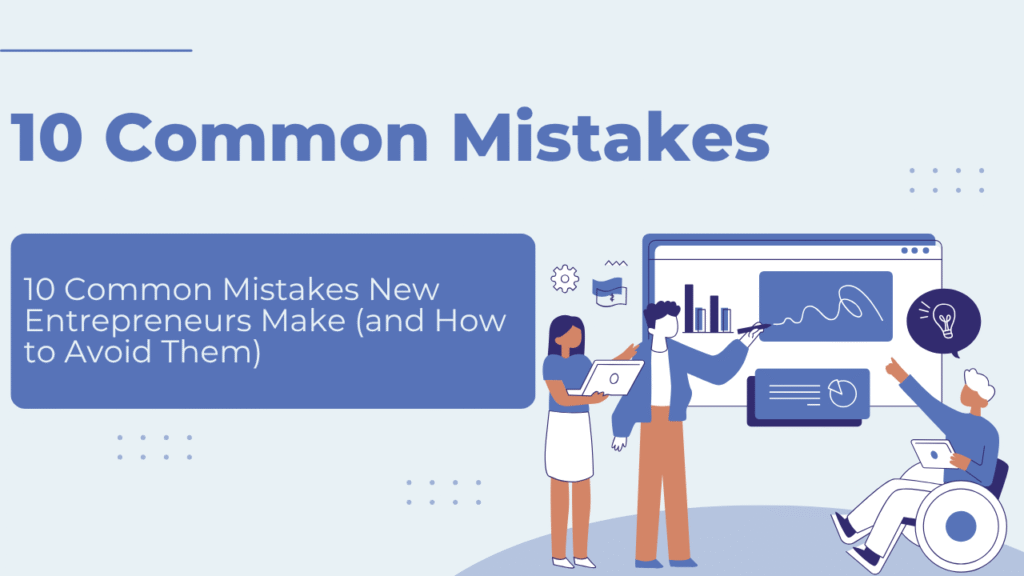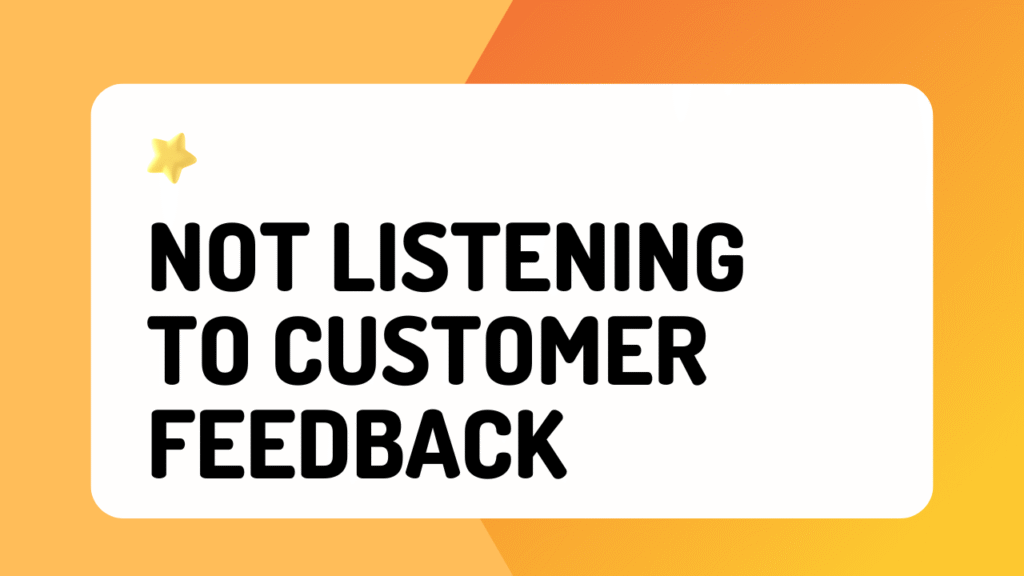⚠️ 10 Common Mistakes New Entrepreneurs Make (and How to Avoid Them)
Starting a business is exciting—but also risky. Many new entrepreneurs jump in with passion but end up making mistakes that cost time, money, and energy.
The good news? Most of these errors are avoidable if you know what to look out for.
In this article, we’ll reveal the top 10 mistakes first-time entrepreneurs make and how you can avoid them to build a successful, sustainable business in 2025.

📌 Table of Contents
- Skipping Market Research
- Not Defining a Clear Business Model
- Trying to Do Everything Alone
- Undervaluing Your Product or Service
- Ignoring Financial Planning
- Neglecting Marketing Early On
- Failing to Identify a Target Audience
- Scaling Too Fast, Too Soon
- Not Listening to Customer Feedback
- Giving Up Too Early
- Final Thoughts + CTA
🧪 1. Skipping Market Research
Many entrepreneurs assume their idea is “perfect” without validating it.
Why It’s a Mistake:
- You may be solving a problem that no one has
- Or entering a market that’s already saturated
How to Avoid It:
- Use Google Trends, Reddit, or Facebook Groups
- Run small surveys or polls
- Analyze competitors and gaps in the market
- Ask real people for honest feedback
🎯 A good idea is only valuable if people are willing to pay for it.
🏗 2. Not Defining a Clear Business Model
Jumping in without a clear plan for how your business makes money is a fast track to failure.
What to Do:
- Decide how you’ll generate revenue: subscriptions, products, services, ads, etc.
- Understand your cost structure and profit margins
- Map out your customer journey from first contact to sale
💡 The clearer your business model, the easier it is to grow and explain to others.
🙅♂️ 3. Trying to Do Everything Alone
Wearing too many hats leads to burnout and slow progress.
Common Mistake:
- You write the content, design the website, answer emails, manage sales, and do taxes—alone.
Solution:
- Delegate small tasks (start with a virtual assistant)
- Use automation tools (Zapier, Calendly, Buffer)
- Partner with freelancers or experts when needed
🧠 Smart entrepreneurs focus on strategy, not just tasks.
💸 4. Undervaluing Your Product or Service
New business owners often price too low because they fear losing customers.
Why This Backfires:
- You attract the wrong customers
- Profit margins are too small
- You create a “cheap” brand image
What to Do:
- Research industry pricing
- Factor in your time, expertise, and value
- Price based on results—not hours
📈 Confidence in pricing shows you believe in your value.
📉 5. Ignoring Financial Planning
Many startups fail not because they lack sales—but because they run out of money.
What to Plan:
- Create a basic monthly budget
- Forecast your cash flow
- Set aside a tax fund
- Separate personal and business finances
💰 Understanding your numbers = peace of mind + smarter decisions.
📢 6. Neglecting Marketing Early On
“If you build it, they will come” is a myth. No marketing = no sales.
What You Should Do:
- Start building your online presence before launch
- Collect emails, post on social media, and share updates
- Use free channels like content marketing, SEO, and Facebook groups
🚀 Marketing is the engine that drives your business forward.
🎯 7. Failing to Identify a Target Audience
Trying to sell to “everyone” means selling to no one.
How to Avoid This:
- Create a simple customer avatar
- Know their age, interests, pain points, and goals
- Tailor your messaging and offers to them
🧲 When your message speaks to the right people, they listen—and buy.
⚠️ 8. Scaling Too Fast, Too Soon
Growth feels exciting—but premature scaling can lead to cash flow problems, delivery issues, and burnout.
Signs You’re Scaling Too Early:
- Hiring before consistent revenue
- Spending heavily on ads without a proven offer
- Offering too many products/services at once
Fix:
- Focus on refining what works
- Grow slowly and steadily
- Reinforce your systems before expanding
🛠️ Strong foundations support smart scaling.

👂 9. Not Listening to Customer Feedback
Ignoring your customers is a missed opportunity to improve and grow.
What You Should Do:
- Ask for feedback regularly
- Send surveys, follow-up emails, or call top clients
- Analyze complaints—they’re often gold in disguise
💬 Your customers are your best consultants—listen to them.
🛑 10. Giving Up Too Early
Success takes time. Many new entrepreneurs quit too soon—right before things start working.
Why This Happens:
- Unrealistic expectations
- Comparing to others on social media
- One bad week feels like failure
How to Push Through:
- Set realistic timelines (6–12 months for traction)
- Celebrate small wins
- Focus on progress, not perfection
💪 The most successful entrepreneurs are those who stay in the game.
✅ Final Thoughts
Being a first-time entrepreneur comes with a learning curve—but it doesn’t have to be painful. By avoiding these 10 common mistakes, you’ll save time, reduce stress, and set yourself up for long-term success.
👉 Ready to Build Smarter?
Start by reviewing your current progress. Which of these mistakes have you made? Which can you fix this week?
The faster you learn, the faster you grow. Stay focused, stay resilient—and build with purpose.